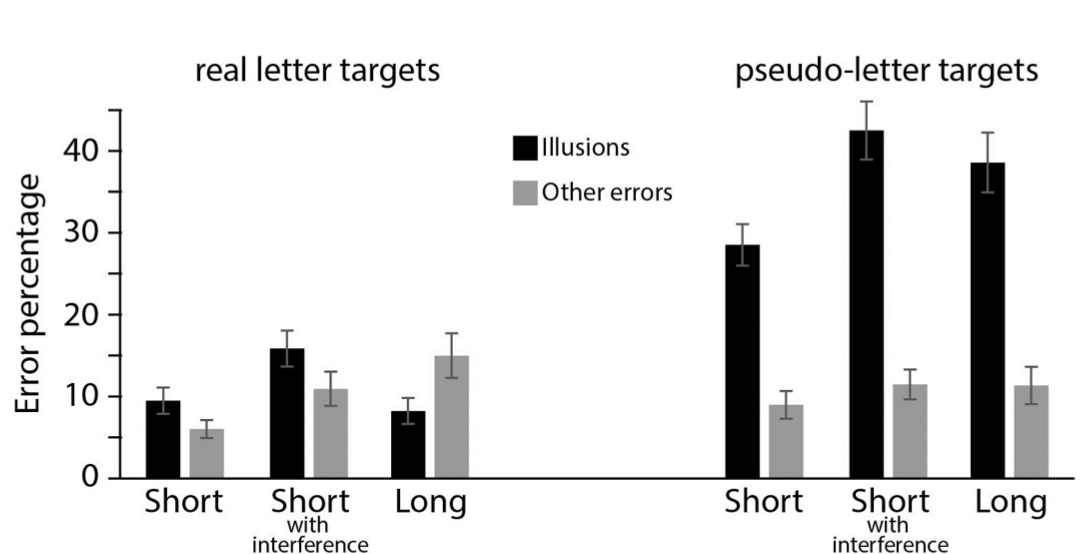Your Brain Can Generate False Memories Faster Than You Think
Have you ever been so sure of a memory, only to later find out it never actually happened? False memories are more common than we think, and our brains are adept at creating them. Research shows that our brains can generate false memories faster than expected.
Have you ever felt absolutely certain that something happened, only to realize it was a false memory? False memories can feel incredibly real, but they result from various factors, such as suggestion, imagination, and misinformation.
Don’t worry; having false memories doesn’t mean your memory system is faulty. It’s simply a common phenomenon that many people experience. It’s a reflection of how our brains process information.
What the Supporting Research Says
Researchers from the University of Amsterdam conducted four experiments. These experiments involved presenting 534 individuals with Western alphabet letters in regular and mirrored orientations.
1/ What just happened? Introducing short-term memory illusions – finally published in @PLOSONE after what seems like aeons in the making, in a study led by Marte Otten and Yair Pinto. Short Easter 🧵https://t.co/dQ4QnTp7z1 pic.twitter.com/iY1prcUD2F
— Anil Seth (@anilkseth) April 8, 2023
Subsequently, an interference slide containing random letters intended would appear to disrupt the participants’ initial memory. The researchers then instructed all participants to recall a specific letter from the first slide.
Nearly 20% of participants had created a false memory of the target letter within half a second of viewing the initial slide. This percentage rose to 30% after three seconds.
You may also like: Study Finds One Simple Trick to Detect Lies with 80% Accuracy
A human being’s brain modifies memories based on their anticipated perception. In this regard, when individuals know the Western alphabet, their brains predict the orientation of the letters they expect to see.
Consequently, when presented with a mirrored letter (Ɔ instead of C), individuals are more prone to recollect the fake letter as genuine, even if only a few milliseconds have passed.
The researchers note that transient memory does not always accurately represent the perceived information. Instead, the expected perception right from the inception of the initial memory trace influences the memory.
How the participants reacted
The researchers then asked participants to rate their confidence in their memories on a scale of one to four. These ratings demonstrated that these were false memories and not simply incorrect guesses.
According to the researchers, the participants consistently expressed high confidence in having seen the counterpart of a pseudo-letter target.
Interestingly, the study found that individuals were more prone to substituting a pseudo-letter with an actual letter than vice versa, indicating that our knowledge of how things typically appear influences memory illusions.

Photo credit: Otten et al., PLOS One, 2023
To differentiate between false memories and perception errors, the researchers measured the participants’ responses at two different time intervals, specifically during the 0.25 seconds when the letters were displayed.
If perception errors caused the mistakes, the error rate would be the same after 500 milliseconds and 3 seconds. However, as the error rate increased, the researchers concluded that participants formed false memories.
You may also like: Tips to Rewire Your Brain So You Can Look Forward to Mondays
This study shows how quickly our brains can create false memories. Other research has shown that suggestion or imagination can create false memories, with some studies even demonstrating that people can remember events that never actually occurred.
Why does the human brain create false memories? http://t.co/EDZfQPqsF5
— BBC News (World) (@BBCWorld) September 29, 2013
So Why Do Our Brains Create False Memories?
One theory is that it is a byproduct of our brain’s attempt to fill in gaps in our memory. Our brains store memories in a fragmented way. When we try to retrieve them, our brains piece them together. In doing so, our brains may add details that were not present.
Another theory is that our brains create false memories to make sense of the world around us. We constantly face information, and our brains have to filter out what is essential and what is not. In the process, our brains may create false memories to make sense of the information we have received.

